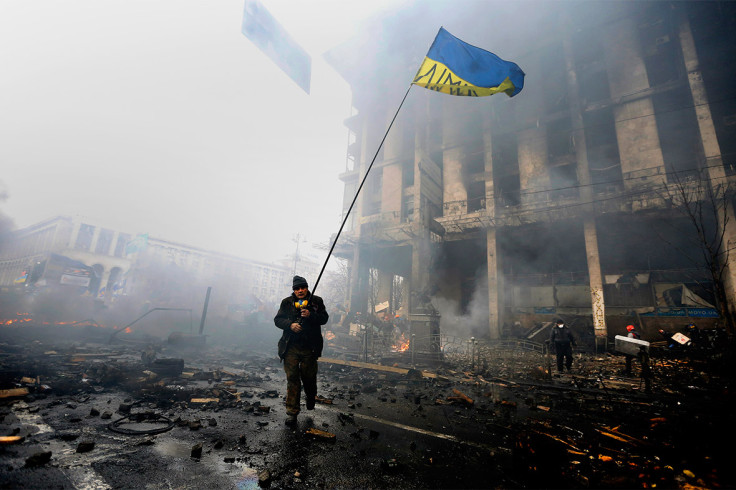Ukraine Crisis: West is Fiddling as Kiev Burns

Those who argue that Western silence on the deteriorating situation in Ukraine has only strengthened Russia's hand overlook the fact that this narrative has been in place for a number of years. Despite the West's claims to uphold democratic and liberal values, from Belarus to Syria, it has been unwilling to intervene to support these. Nowhere is this notion more dominant right now than in Kiev, where protestors are being killed by a Kremlin-backed regime while Western states urge authorities to "show restraint".
Although it was not the first example, the Russian-Georgian war of August 2008 set the standard. When Georgia and Russia went to war, the EU and the US did not come to Georgia's aid. For the first time since the end of the Cold War, Russia invaded and then occupied a neighbouring country. The response of the West was anaemic. While the EU took a lead role in formulating the six-point peace plan, it was neither able nor willing to make Russia enforce it. The actions of the US, Georgia's supposed security guarantor, suggested Georgia was irrelevant.
Thus, it became clear that the West would not intervene against Russia's attempts to dominate the post-Soviet states, seen by the Kremlin as its region of 'privileged interest'.
Just as the geopolitical battle over Georgia was about its future – whether it should look east to Russia or west to Europe – so too is the current situation in Ukraine. The situation has its origins in the unsatisfactory ending of the 2004 Orange Revolution. After rigged elections, in November 2004, bought pro-Russian Viktor Yanukovych to power, citizens took to the streets in protest. The protests led to new elections, in December 2004, that saw pro-Western Viktor Yushchenko become president. The revolution, however, was over almost as soon as it began. After years of disappointment and infighting, Yanukovych was elected as president in 2010.
The narrative Yanukovych propagated in 2004 and 2010 was simple: Europe is not to be trusted, and only with Russia is our future secure. It was – and continues to be – a powerful one. When it came to November 2013 and the question of whether or not Ukraine should sign an Association Agreement with the EU, Russia offered the Ukraine a deal that included US$15 billion in loans and significantly cheaper natural gas imports. The EU offered Ukraine a treaty that would give it the same access to the European market as enjoyed by the African, Caribbean and Pacific Group of States. Yanukovych looked east, looked west, then looked east again.
For the past three months, Ukrainians have been protesting against this decision. Today, people are being killed on the streets because Yanukovych is unwilling to seek political dialogue. Images abound in the media, and are shocking. These images may boost public support for Western intervention in Ukraine, but if support is not forthcoming then it will be remembered for decades, in Ukraine, as evidence of Western complicity in Ukrainian suffering. The West watched on, it will be said, as Kiev burned.
If the West is to act, it would do well to do so soon. Earlier this week, the parliament in Crimea – a region in eastern Ukraine populated primarily by ethnic Russians – declared the situation a "civil war". If protests and instabilities spread to Crimea, then Russia may be inclined to intervene in the region to protect its citizens, just as it did in Abkazhia and South Ossetia in August 2008. Should this happen, who knows where the violence would end?
Dr Andrew Foxall is Director of the Russia Studies Centre at The Henry Jackson Society
© Copyright IBTimes 2025. All rights reserved.




















